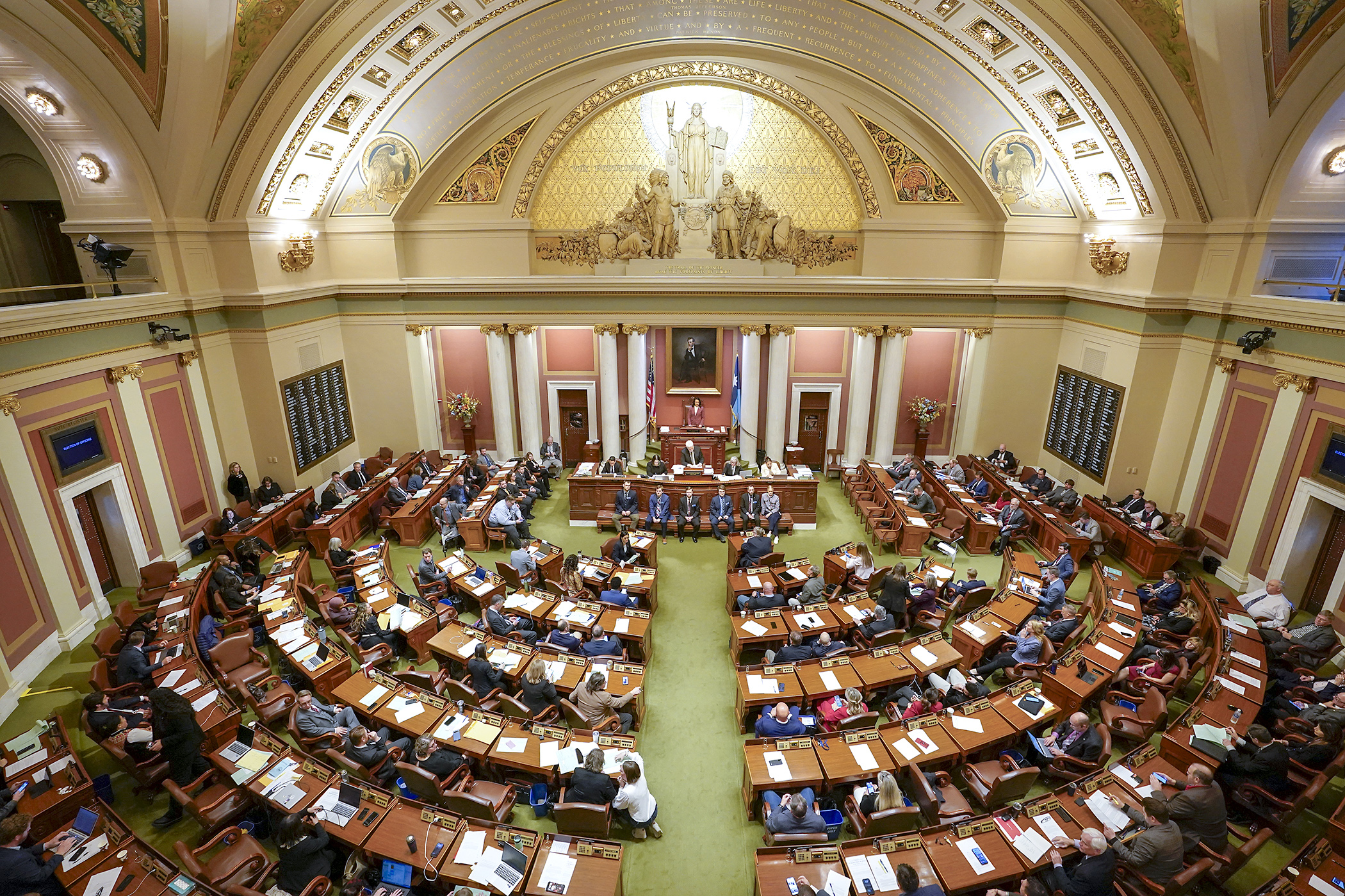House backs education finance bill with $44 million boost for Minnesota schools

The omnibus education finance bill has graduated from the House Floor.
After weeks of leadership dealmaking, HF2433 was passed 93-41 Friday and sent to the Senate.
Sponsored by Rep. Cheryl Youakim (DFL-Hopkins), it would provide a $44.3 million increase over the February forecast base for a total budget of almost $25.77 billion in the 2026-27 biennium. It would also make cuts in several areas.
“[The bill] reflects a compromise that a dynamic of a tight House requires for us to fund our schools,” said Youakim, who co-chairs the House Education Finance Committee with Rep. Ron Kresha (R-Little Falls). “While we’ve made great progress in the 2023-24 session in both finance and policy, there is still more to do to meet the growing needs of our school districts and our teachers and students.”
Kresha praised the bill for giving more local control back to schools. “The more we put this in the hands of our schools, let them solve the problems, the better this is.”
[MORE: Download the spreadsheet]
Summer unemployment insurance
The bill would provide a one-time $30 million emergency appropriation in fiscal year 2026 to fund the summer unemployment insurance program for hourly and temporary workers. School districts would need to provide the funding one year later and the program would be eliminated for the 2028-29 school year.
Estimated unemployment aid disbursements for fiscal years 2024 and 2025 are $102 million of the original $135 million allocated for the program. That leaves $33 million in the fund for fiscal year 2026 when estimates for summer-term unemployment insurance costs are $63 million.
[MORE: Summer unemployment benefits included in education finance bill headed for House Floor]
Republicans continue to say school districts can’t afford the cost of unemployment insurance without state aid or making cuts elsewhere and the program needs to be eliminated.
Rep. Peggy Bennett (R-Albert Lea) said Republicans should not be classified as being anti-worker and suggested looking into creative opportunities to keep hourly school workers off unemployment.
“We are not against this particular mandate because we don’t like those workers or don’t value them,” she said. “We’re against it because we believe that we should be focusing on employment opportunities not on unemployment.”
DFLers are not supportive of an omnibus bill with the unemployment insurance cut.
“It was a historical injustice that our hourly workers in our schools were specifically excluded from receiving unemployment,” said Rep. Kari Rehrauer (DFL-Coon Rapids).
But another funding source has emerged to replace the original bill provision and fully fund the program through the 2027-28 school year.
Sponsored by Rep. Emma Greenman (DFL-Mpls), HF1143 would cancel $77.23 million of a 2023 appropriation for the Northern Lights Express rail project — proposed passenger rail service between Minneapolis and Duluth — and shift about $22.6 million from special education aid to provide $100 million in fiscal year 2026. It was passed 131-0 Friday.
School library aid cut
The bill would cut school library aid by $44.96 million in the 2026-27 biennium and more than $47 million in the 2028-29 biennium. Dollars are used to fund media specialist salaries; electronic, computer and audio-visual equipment; IT infrastructure and digital tools; electronic and material resources; and furniture, equipment and supplies.
While the state school librarian won’t be eliminated, the $260,000 state funding for the position in the 2026-27 and 2028-29 biennia would be cut, leaving the Department of Education to find funds for the position.
Going against the governor
In his education finance proposal, Gov. Tim Walz has called for cutting both nonpublic pupil transportation aid and nonpublic pupil aid funding for an estimated savings of about $110 million in the 2026-27 biennium and $119 million in the 2028-29 biennium. Neither is in the bill.
The education finance bill would also:
- provide an additional $70.98 million in basic supplemental revenue aid and $40 million in fiscal year 2026 for READ Act compliance;
- expand the long-term facilities maintenance program so that roof replacement and repair are covered for all school districts beginning in fiscal year 2028;
- allow schools to use food service funds for nutritional programs, lunchroom and kitchen space, and;
- create a Compensatory Revenue Task Force to examine Minnesota’s compensatory revenue program and report back to the Legislature.
Related Articles
Search Session Daily
Advanced Search OptionsPriority Dailies
Stable budget outlook projects $3.7 billion surplus now, no deficit in next biennium
By Lisa Kaczke The projected surplus for Fiscal Years 2026-27 is now higher than it was in the November estimate, and no deficit is projected for the next biennium.
“Minnesota’s budge...
The projected surplus for Fiscal Years 2026-27 is now higher than it was in the November estimate, and no deficit is projected for the next biennium.
“Minnesota’s budge...
Legislative leaders set 2026 committee deadlines
By Lisa Kaczke Legislative leaders on Tuesday officially set the timeline for getting bills through the committee process during the upcoming 2026 session.
Here are the three deadlines for...
Legislative leaders on Tuesday officially set the timeline for getting bills through the committee process during the upcoming 2026 session.
Here are the three deadlines for...